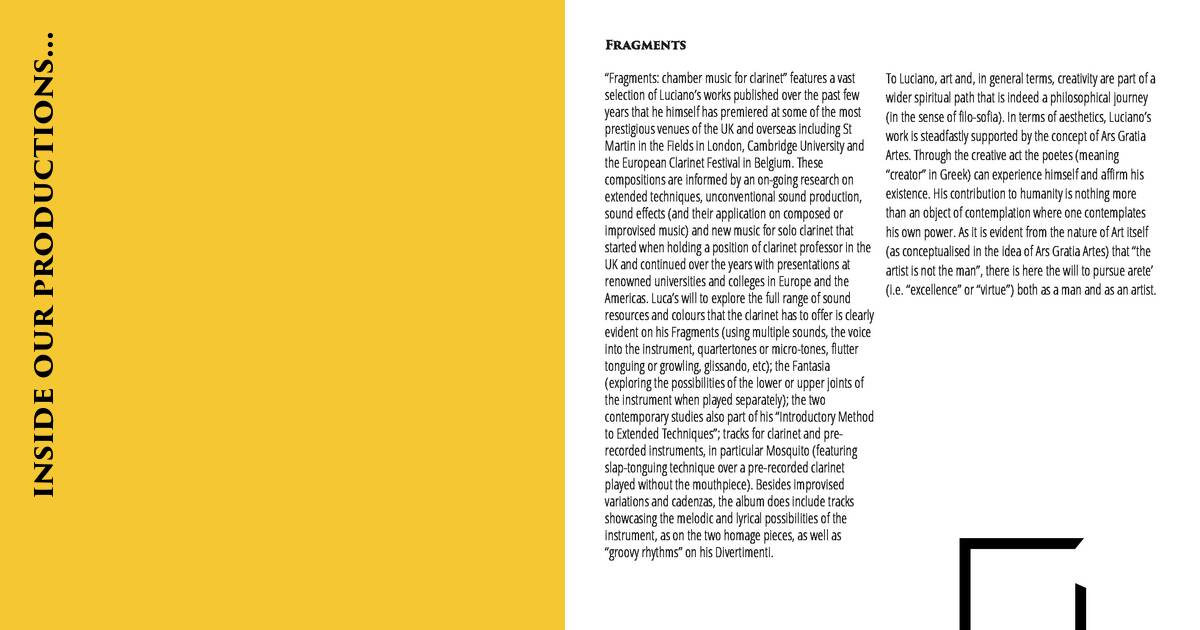
..an excerpt from a booklet from one of our publications... 0043
Fragments
“Fragments: chamber music for clarinet” features a vast
selection of Luciano’s works published over the past few
years that he himself has premiered at some of the most
prestigious venues of the UK and overseas including St
Martin in the Fields in London, Cambridge University and
the European Clarinet Festival in Belgium. These
compositions are informed by an on-going research on
extended techniques, unconventional sound production,
sound effects (and their application on composed or
improvised music) and new music for solo clarinet that
started when holding a position of clarinet professor in the
UK and continued over the years with presentations at
renowned universities and colleges in Europe and the
Americas. Luca’s will to explore the full range of sound
resources and colours that the clarinet has to offer is clearly
evident on his Fragments (using multiple sounds, the voice
into the instrument, quartertones or micro-tones, flutter
tonguing or growling, glissando, etc); the Fantasia
(exploring the possibilities of the lower or upper joints of
the instrument when played separately); the two
contemporary studies also part of his “Introductory Method
to Extended Techniques”; tracks for clarinet and prerecorded instruments, in particular Mosquito (featuring
slap-tonguing technique over a pre-recorded clarinet
played without the mouthpiece). Besides improvised
variations and cadenzas, the album does include tracks
showcasing the melodic and lyrical possibilities of the
instrument, as on the two homage pieces, as well as
“groovy rhythms” on his Divertimenti.
To Luciano, art and, in general terms, creativity are part of a
wider spiritual path that is indeed a philosophical journey
(in the sense of filo-sofia). In terms of aesthetics, Luciano’s
work is steadfastly supported by the concept of Ars Gratia
Artes. Through the creative act the poetes (meaning
“creator” in Greek) can experience himself and affirm his
existence. His contribution to humanity is nothing more
than an object of contemplation where one contemplates
his own power. As it is evident from the nature of Art itself
(as conceptualised in the idea of Ars Gratia Artes) that “the
artist is not the man”, there is here the will to pursue arete’
(i.e. “excellence” or “virtue”) both as a man and as an artist.
News,Extra


